
Dunelm Optical
John Proctor, managing director
Optician: How has your company been affected by the pandemic and what sort of measures were implemented?
JP: Our business has been severely hit by the restrictions put in place by the government. At the height of lockdown, we had lost 90% of our regular income. With strong social distancing policies in place we have been able to keep our Spennymoor-based headquarters and glazing laboratory open. We have been delighted to service the emergency needs of our clients. As optical practices have reopened in the Republic of Ireland we have seen a strong recovery. Our international markets are also picking up which is encouraging.
O: How does the company intend to support its customers on the road to recovery?
JP: We are primed and ready to go just as soon as practices re-open. Our clients can expect to receive our latest brochure, which features a host of new releases. We have complimentary glazing offers which will help hard pressed independents get back into business. Our area representatives will be incredibly flexible in their approach to meeting clients. In person meetings may take some time to resume so we are ready to embrace all new
technologies to put ourselves in front of our clients.
O: What have been the main challenges when doing business with optician customers?
JP: One of the main challenges of servicing optical practices through lockdown has been the delivery of goods. Many practitioners have chosen to run emergency services from their home addresses. Switching from our usual couriers to Royal Mail has not been as easy as it sounds but we thank our local Royal Mail team for all their sterling work.
O: Will eyewear companies look for new routes to market, such as direct to consumer, in the post-coronavirus era?
JP: We are committed to support independent optical practices. There will be many new opportunities post-Covid and we are actively working with our clients to deliver an even better offer. Our new all-in glazed packages are incredible value and I am looking forward to getting some great offers into the marketplace.
O: What will practices have to do differently when they open for business again?
JP: I am sure practices will be able to cope with the social distancing changes. In house glazing is, however, going to be very challenging for some. I think many independents will want to de-risk and hold less stock. Our comprehensive consignment programme makes great sense. Leave the frame on the peg, place your order for frame and glazing with Dunelm Optical, benefit from our premium priority service and receive delivery by return.
Booth & Bruce
Peter Sunderland, company director
O: How has your company been affected by the pandemic and what sort of measures were implemented?
PS: When the lockdown was implemented, we reduced our access to the office. We made sure that we were available for queries and responded to them as quickly as we could. We kept a close eye on emails and social media channels to make sure no enquiry was missed. With every country at different stages of the pandemic, we made an essential journey once a week to our stock room in order to send any orders that were placed. We understand how important it is for opticians to help their customers, or re-stock their shelves at a time when every sale counts.
O: How does the company intend to support its customers on the road to recovery?
PS: We have been looking at ways to give our valued stockists as much support as we can offer. As an independent business ourselves, we completely understand the cashflow problems that our stockists are facing. We are offering extended credit, splitting any payments necessary over several months. We are also offering a bounce back with our Booth & Bruce consignment offer for a limited time. This will be a low risk, low expense way to introduce a new range to the practice. We’re optimistic there will be a backlog of people needing eye tests and wanting to buy new glasses and with each careful, safe step towards welcoming customers back, we all get closer to recovering our losses.
O: What have been the main challenges when doing business with optician customers?
PS: A big challenge is in the nature of the product. It is difficult to sell glasses without touching your face. The normal glasses buying process might have to look a little different. We’re hoping this might be an opportunity for the optician to use their styling skills to select frames that they are confident the customer will suit and like.
O: Will eyewear companies look for a new route to market in the post-coronavirus era?
PS: We are totally committed to supporting our local independent stockists and to sell directly to the consumer is not on our agenda. We prefer to empower and celebrate the independent opticians across the country and the world who choose to work with us and stock our brand. By supporting them, we are supporting ourselves. In fact, I feel the coronavirus pandemic has shown us how linked we are and how we all rely on each other to succeed. It’s been a real lesson in how important it is to help each other.
O: What will practices have to do differently when they open for business again?
PS: When arranging visits, our agents will be working closely with their stockists to agree safe ways of working together. Various measures will be suggested, including the use of PPE, dropping the frames off and collecting at a later time, reduced handling and increased cleaning and sanitising of the frames. This will be discussed on an individual basis. In practices, I think a more personalised approach will be the way forward, using opticians’ years of knowledge and experience to help guide a customer to their perfect pair of glasses, which could be a real positive.
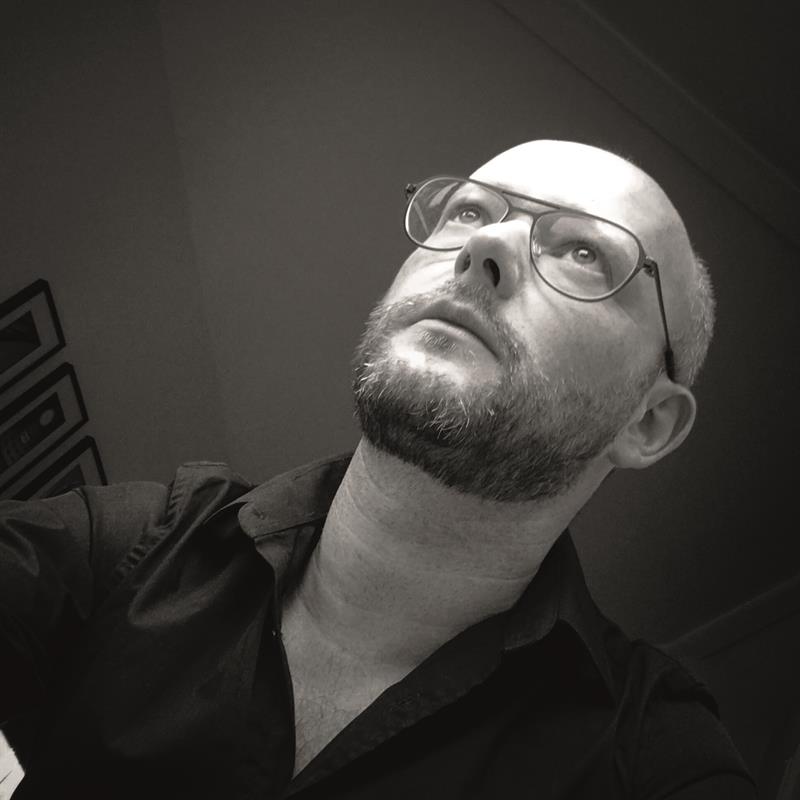 Peter Sunderland, company director at Booth & Bruce
Peter Sunderland, company director at Booth & Bruce
Kirk & Kirk
Jason Kirk, managing director
O: How has your company been affected by the pandemic and what sort of measures were implemented?
JK: All of our UK staff have been furloughed, except one to maintain customer service and deliveries. All frames receive an ultrasonic clean prior to despatch. We have also made the necessary plans to maintain social distancing when we do eventually return to work. Our French factory closed temporarily, but our ability to supply was never really interrupted.
O: How does the company intend to support its customers on the road to recovery?
JK: Opticians, frame designers, contact lens suppliers, case-makers, lens suppliers and trade shows all need to act together as a profession to face up to the economic challenge. We are working with our customers to ensure that they have the right stock to optimise their offer to their customers. We are also helping people with payment plans so that retailers are not put under more stress than is absolutely necessary but we need to survive too.
O: What have been the main challenges when doing business with optician customers?
JK: Hygiene is a priority but opticians cannot neglect commerciality because we all have rent and staff to pay. The other issue is that opticians think that whenever we are talking about product, we are trying to sell something. We want to help our profession come through this.
O: Will eyewear companies look for new routes to market, such as direct to consumer, in the post coronavirus era?
JK: Online and bricks and mortar need to co-exist and coronavirus has simply sped up the process. Opticians need to embrace technology and use it to their advantage or fall behind. We have to respect the way that consumers choose to purchase but we also have to put more emphasis on educating the consumer about when they need to physically visit an optician. Kirk & Kirk will continue to encourage consumers to get professional, medical advice from an optician.
O: What will practices have to do differently when they open for business again?
JK: This hiatus should be the defining moment for all retail opticians. We need PPE and to maintain distance in the practice, but we also need the user experience to be superb to make them want to come back even when they do not need an eye test or new glasses.
For the most part, I am seeing plastic screens and few or no frames on display. This will only serve to distance the consumer from the optician and, without an emotional connection, the desire to spend money will decrease further and your business will be in a lot of trouble, very quickly.
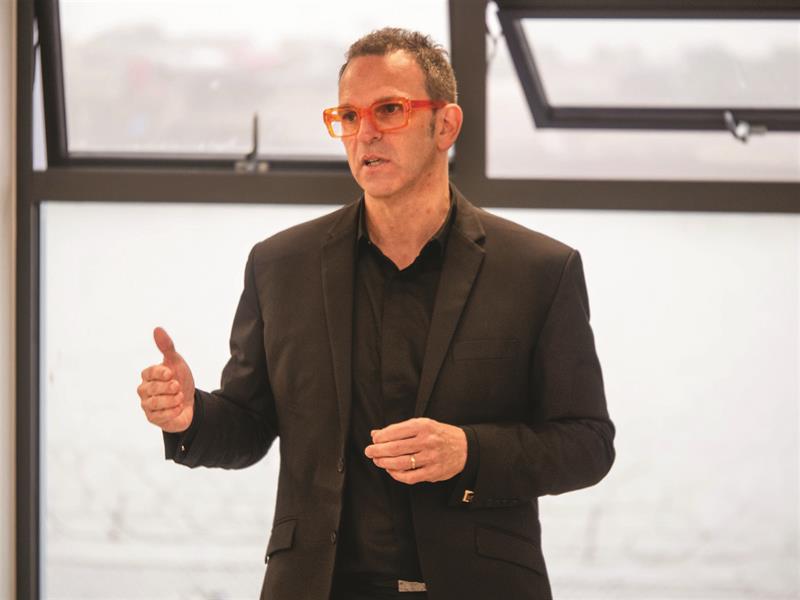 Jason Kirk, managing director, Kirk & Kirk
Jason Kirk, managing director, Kirk & Kirk
International Eyewear
Sam Rogers, director of sales and marketing
O: How has your company been affected by the pandemic and what sort of measures were implemented?
SR: The growing uncertainty of the coronavirus pandemic meant International Eyewear made the difficult decision to temporarily close. This was not a decision we took lightly but we believed was in the best interests of both our staff and customers. Our office went into hibernation but our website remained active for browsing needs and we were fully contactable in the event of a frame emergency.
In the company’s 32-year history we have never been closed for this length of time. It is no doubt that the last few months have been a rollercoaster for everyone. However, there is light at the end of the tunnel and International Eyewear reopened its doors on June 1. We are slowly bringing the IEL team back to action and look forward to supplying our customers with their everyday eyewear needs.
O: How does the company intend to support its customers on the road to recovery?
SR: Life has changed for us all over the last couple of months and throughout this time the most important thing has been the wellbeing of our colleagues and customers. This has meant that we are doing things slightly differently with extra safety measures in place. We have created guidelines for frame safety and frame returns, as well as recommendations for frame cleaning.
We are aware that when it comes to our customers needs there is no one size fits all approach so, for us, it is all about that personal touch, listening to their individual needs and working together to provide the most effective support for every practice. We will also be implementing a handful of promotions to assist customers with their buying and when the time comes that we can visit practices again customers can rest assured that our regional sales managers will be following strict hygiene and safety standards.
O: What have been the main challenges when doing business with optician customers?
SR: These testing times have tasked us with much uncertainty and many challenges, one such challenge International Eyewear has faced is postal problems. With the office being closed and the company operating a reduced emergency service it has been difficult getting our frames to our customers quickly and efficiently for repairs and breakages. The option to supply to an alternative practice home address has proven to be invaluable to us.
O: Will eyewear companies look for new routes to market, such as direct to consumer, in the post-coronavirus era?
SR: Eyewear companies will most definitely need to find new routes to market and will look at inventive ways of targeting direct to consumers. It is safe to say that with social distancing and safety guidelines in place for the foreseeable future we are sure to see a surge in online sales. Ultimately, the global pandemic has shown that finding viable alternatives to normal business operations will ensure that service resumes and the optical industry as a whole can continue.
O: What will practices have to do differently when they open for business again?
SR: Practices will need to adapt to the new norm. The main area of consideration will be the amount of people in practice at any one time. This could be overcome by implementing staff rotas, staggered breaks, locked door, one-in-one-out systems and a reduction in daily and hourly appointments. However, this does allow for more one-to-one patient and professional contact, which in turn could result in a more productive appointment. Offering a great service, great choice of frames and after service will be absolutely critical.
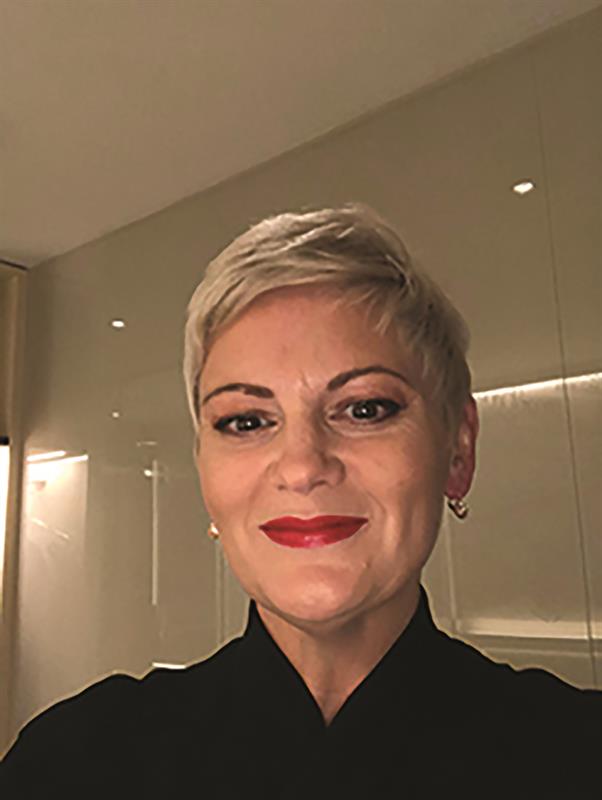 Sam Rogers, director of sales and marketing, International Eyewear
Sam Rogers, director of sales and marketing, International Eyewear
Millmead Optical Group
James Conway, chief executive officer
O: How has your company been affected by the pandemic and what sort of measures were implemented?
JC: Coronavirus created significant challenges for our business due to the substantial closure of optical retailers in the UK & Ireland. We took the necessary safety measures for staff, enabling those who could work from home to do so. We then followed guidance keeping a handful of employees working in our head office to help fulfil customer orders.
O: How does the company intend to support its customers on the road to recovery?
JC: To help support optical practitioners we have made available a full range of personal protective equipment products through our B2B platform Continental Eyewear. We have also compiled a guideline on how to clean and disinfect frames and Continental Eyewear will be sharing this shortly.
O: What have been the main challenges when doing business with optician customers?
JC: Not seeing our customers in person makes it more difficult to present the eyewear products. The move towards more digital platforms has gathered some real pace due to the lockdown.
We are committed to carrying on with a good service; communicating to customers through an outbound call, direct email, our website and social media is more important than ever. Our area managers will be speaking with all our customers over the next few weeks to assist wherever possible as businesses reopen.
O: Will eyewear companies look for new routes to market, such as direct to consumer, in the post-coronavirus era?
JC: Presenting new eyewear and accessory collections is certainly more of a challenge. We thankfully have a strong B2B platform and excellent customer service team that are in constant communication with our retail customers. We will support our partners with more digital tools than ever before so they can communicate effectively with their patients.
O: What will practices have to do differently when they open for business again?
JC: Customers will always want to try on eyewear where possible, so there will need to be added cleaning and disinfecting measures in place to protect both staff and shoppers. I think many retailers will look at the testing and diagnostic procedures in their practices and see how technology can make a positive change to customer care and the customer experience.
I think some consumers may have tried online purchases of eyewear over the course of the lockdown and there may be an increase in demand for quicker fulfilment times for their eyewear needs going forwards. With the combination of Continental Eyewear and Jai Kudo lenses we can give that extra level of
responsiveness.
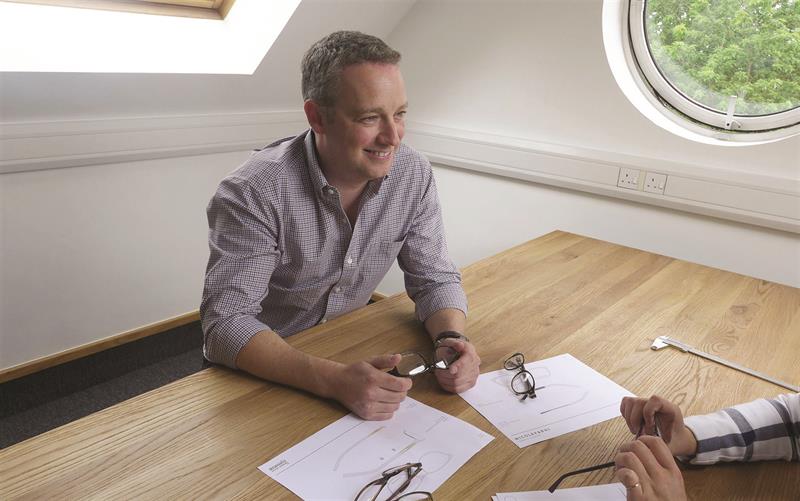 James Conway, chief executive officer, Millmead Optical Group
James Conway, chief executive officer, Millmead Optical Group
Inspecs
Robin Totterman, CEO and founder
O: How has your company been affected by the pandemic and what sort of measures were implemented?
RT: Inspecs may have faced the challenges of the outbreak earlier than most, as its factory in China was closed for approximately two months. After re-establishing operations in China, Covid-19 then hit Europe with the majority of customers temporarily suspending operations.
Currently, our UK office remains closed but throughout the lockdown period, Inspecs staff have successfully worked remotely. Our offices around the world have followed local government guidelines for both their closure and reopening, and Inspecs factories are able to work in line with current demand.
O: How does the company intend to support its customers on the road to recovery?
RT: Our commercial team has spent time understanding the challenges that independent opticians are facing. Inspecs is gathering intel on a daily basis from our network of overseas offices, distributors and multiple retail customers, with regards to how they have been starting to open for business in other countries and how we can best apply what we have learned to support the gradual opening of the UK.
During downtime we have been preparing a new way for our customers to access our products through a dedicated B2B online order and multimedia platform (supported by real humans) which will be open for business from July.
We are also preparing an exclusive offer for our independent customers – our Valued Business Partner programme – which will allow us to rebuild together, offering our most valuable customers incredible flexibility with unprecedented payment terms and fresh new product replenishment.
It is important to note that Inspecs has taken a continuous supply standpoint in our factories. We are seeing broader disruptions to supply chains across other Far East suppliers due to the lockdown of global retail. We expect this to impact most brands’ supply chains who rely on outsourced supply throughout the rest of 2020 and into 2021.
O: What have been the main challenges when doing business with optician customers?
RT: Our biggest challenge has been the difficulty in directly serving our customers during a global lockdown. A number of our customers have managed to continue their work and have carried on ordering while serving emergency customers. As such, we have maintained service levels, fulfilling those orders via our customer service team and our distribution centre teams.
O: Will eyewear companies/brands look for a new route to market (direct to consumer) in the post-coronavirus era?
RT: Moving forward, our customers will need to discover new omni channel and ‘direct to consumer’ ways of working. At Inspecs, we are doing everything we can to support this – we have developed a B2B platform and a digital ImageRelay, as well as in-house marketing and photography support for our customers’ digital requirements.
One of the positive developments to come from the current situation is that the removal of face-to-face contact with our optician customers has fast-tracked the creation of an Inspecs online shop, specifically tailored to our opticians. This facility will allow them to make visit-free orders in a more convenient and effective way, supported by the same teams that our customers are used to dealing with.
O: What will practices have to do differently when they open for business again?
RT: Inspecs is ready to operate in a different way, combining the best of traditional service with digital support. This is a chance to adapt in order to experience convenient and crucially, safe ways to open for business.
Our sales teams are ready to offer flexible support to engage our customers in the new virtual environment. Presenting virtually will be entirely possible via virtual sample bags, digital assets and video presentations. Initially, new procedures will be onerous and costly to the practice owners, but in time, some of these requirements will be relaxed and a sense of normality will ensue.
I believe that this whole situation has provided the opportunity for every business owner and operator to think through their businesses and how its operate, re-evaluate what motivates them, as well as how to drive their business and themselves forward.
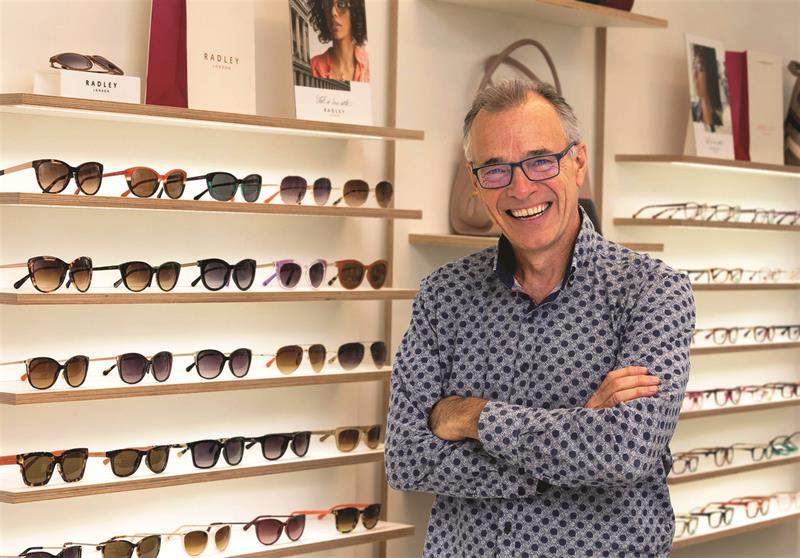 Robin Totterman, CEO and founder, Inspecs
Robin Totterman, CEO and founder, Inspecs


